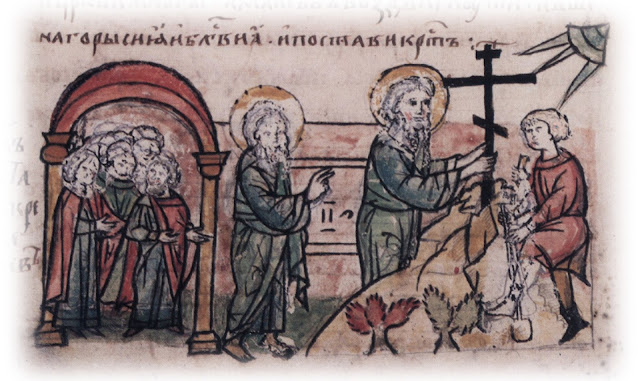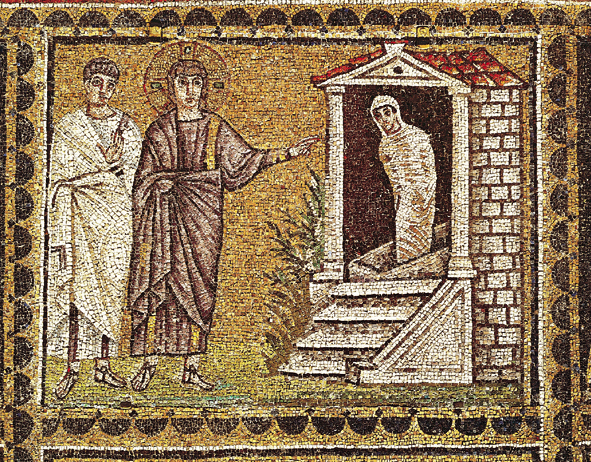A talk for St Andrew's day. John 1.35-42

John 1.35-42 St Andrew, according to tradition, placing the cross on the hill where Kyiv was built. A miniature from the Radziwill manuscript. Thank you for joining us today as we celebrate and honour St Andrew We honour St Andrew as the first follower of Jesus He was the first called (we read that in Matthew and Mark), but our reading today focusses on Andrew as the first who chose to follow Jesus. Andrew was a fisherman. He was also a follower of John the Baptist. But John the Baptist does something remarkable. He points Andrew away from himself and towards Jesus. He sees Jesus coming and he tells Andrew and another disciple, possibly John, ‘Look, here is the Lamb of God’. If you visit the Tretyakov gallery, it is almost impossible to miss Ivanov’s amazing painting of John the Baptist pointing to Jesus. And we are told, “The two disciples heard him say this, and they followed Jesus.” They are the first to follow Jesus, and it was the beginning of a lifelong journey. Andrew was faith...


